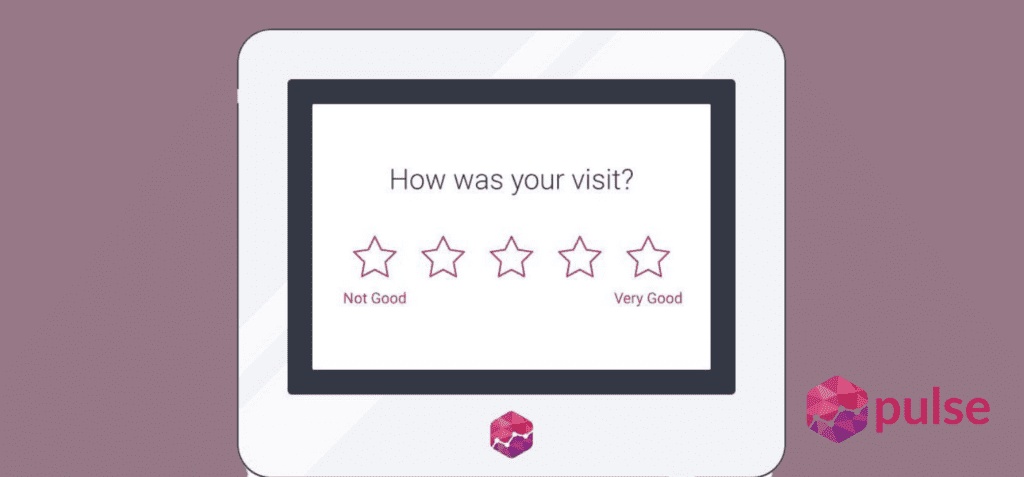Five innovations helping charities – Springwise
In the popular imagination, innovation can sometimes be conflated with the world of Silicon Valley, while charity is associated with second-hand clothes shops and bake sales. But this is far from the reality. Charities and non-profit organisations have a huge incentive to innovate to make the best use of their donors’ funds. And many startups work closely with the charitable sector, either as partners or suppliers.
Ahead of the International Day of Charity on the 5th of September, we take a look at how innovation is disrupting the world of giving. From methods of fundraising that tap into web 3.0 to new ways of measuring the services charities provide, here are five of the most innovative solutions helping charities and non-profits thrive in the modern world.

KIOSKS ENCOURAGE VULNERABLE PEOPLE TO PROVIDE FEEDBACK ON SERVICES
It is a sad reality that the most vulnerable in society are also the least likely to provide feedback on the services they receive. Those needing support from mental and behavioural health facilities, refugee resettlement agencies, affordable housing units, and homelessness charities are particularly unlikely to express their views. Pulse for Good is a US-based company on a mission to overcome this challenge – ensuring everyone gets a say on the services they use. Its solution is to install physical kiosks within facilities that provide a discrete, simple, and consistent way for clients to express their views. Read more

A DECENTRALISED NFT MARKETPLACE FOR GOOD CAUSES
The technologies underpinning Web 3.0—the much talked about concept of a decentralised third iteration of the internet—are seen, and talked about, everywhere today. And with them come many opportunities to do good. One organisation that is determined to demonstrate the positive benefits of Web 3.0 is charity NFT marketplace Maxity. In essence, the Maxity platform is an intuitive interface for charities to generate and sell NFTs to support their activities. For example, one NFT launched on Maxity represents ownership of a black walnut tree planted by Queen Elizabeth II on Magna Carta Island, London. The NFT sale will raise money for The Magna Carta World Peace and Sustainability Foundation – an organisation that promotes national and international conflict resolution. Read more

NONPROFIT SEARCH ENGINE DONATES 80 PER CENT OF PROFITS TO OTHER NONPROFITS
European non-profit search engine, Ask.Moe, donates 80 per cent of its profits to other non-profit organisations with a proven track record. The company currently uses Google’s Programmable Search Engine, and is working on functionality to give users a vote on where the donations are directed. Ultimately, Ask.Moe claims that by using its platform, users can turn their 20 daily Google searches into €7.50 monthly donations to charities. Read more

APP CONNECTS DONORS TO THE HOMELESS THROUGH DIGITAL DONATIONS
London-based social startup Unify Giving is developing an app that will allow people to make digital contactless donations to the homeless community. For those wishing to make a donation, it will be as simple as tapping the homeless person’s RFID wristband on the street or by using the ‘Unify Sofa-Giving’ function in the app. People in emergency refuge situations or substandard housing can also receive donations through Unify, which will be stored safely on an individual profile linked to that recipient. Read more

A DIGITAL ADVERTISING PLATFORM THAT PAYS PEOPLE TO WATCH ADS
Advertising agency WeAre8 has come up with a plan to disrupt the digital ad industry through a platform that donates to charity and pays people to watch ads. The platform works via an app. People who want to participate download the app and can sign up to be notified when there is an ad they might be interested in. Users watch the ad, answer questions, and within 30 days anywhere from 5p-20p is deposited into their WeAre8 wallet. The money can then be used to pay a mobile phone bill, sent to a PayPal account, or donated to any of the more than 50 charities set up on the app. The agency uses a ‘sustainable ad buying engine’ and promises that 55 per cent of every pound advertisers spend will be shared with users and charities. Read more
Curated by: Matthew Hempstead
To keep up with the latest sustainable innovations, sign up to our free newsletters or email info@springwise.com to get in touch.
31st August 2022

